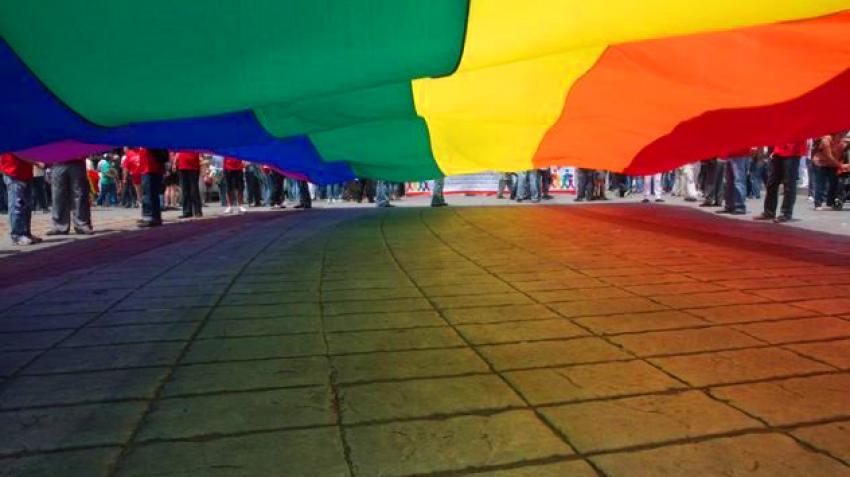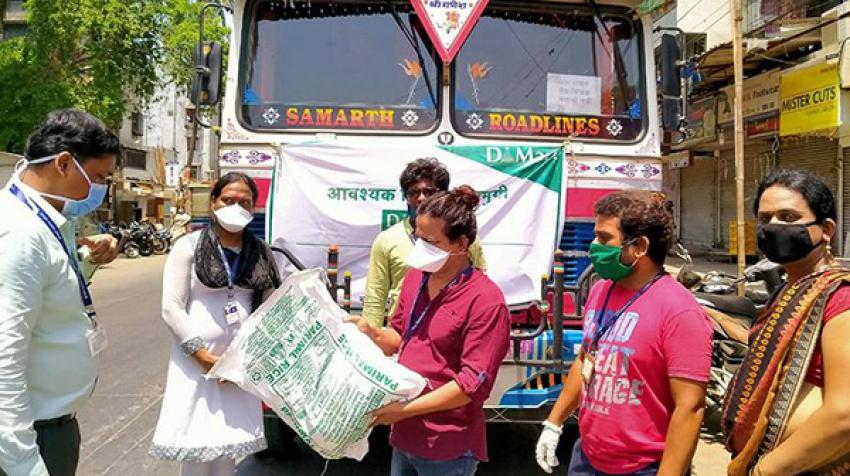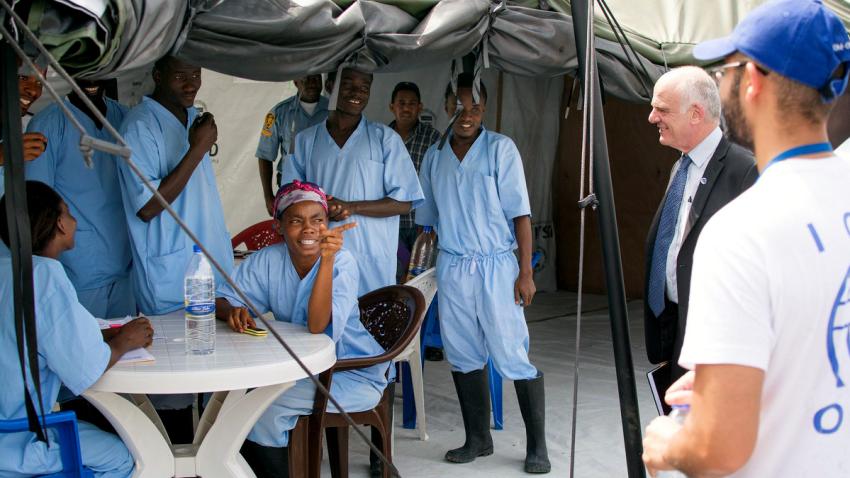“LGBTI people are among the most vulnerable and marginalised in many societies, and among those most at risk from COVID-19.” – UN High Commissioner for Human Rights Michelle Bachelet
15 June 2020 – With New York City’s Pride March this month to be organized virtually for the first time in its 50-year history, the United Nations is continuing to support lesbian, gay, bisexual, trans and intersex (LGBTI) people, who are among the most vulnerable during the COVID-19 pandemic.
“Although pride parades are a big feature of the celebrations, this year communities are planning to hold events virtually because of COVID-19,” says the Joint United Nations Programme on HIV/AIDS (UNAIDS) in a special feature website. “UNAIDS is proud to be an ally of pride as we recognize the important contributions that LGBTI people make to communities everywhere.”
A guidance published in April by the Office of the United Nations High Commissioner for Human Rights (OHCHR), identifies many challenges LGBTI people face during the crisis and sets out key actions in the context of the pandemic.
“LGBTI people are among the most vulnerable and marginalised in many societies, and among those most at risk from COVID-19,” said UN High Commissioner for Human Rights Michelle Bachelet. “In countries where same-sex relations are criminalised or trans people targeted, they might not even seek treatment for fear of arrest or being subjected to violence.”
Numerous challenges
Examples of health care discrimination based on sexual orientation and gender identity have been extensively documented in many countries. This discrimination can elevate the risk for LGBTI people from COVID-19.
Given overloaded health systems, treatment of LGBTI people, including HIV treatment and testing, hormonal treatment and gender affirming treatments for trans people, may be interrupted or deprioritized.
LGBTI people have been subject to stigmatization, discrimination, hate speech and attacks. In some countries, reports suggest an increase in homophobic and transphobic rhetoric. There are also reports of police using COVID-19 directives to attack and target LGBTI organizations.
IOM stands with all LGBTIQ+ individuals around the world and remains committed to ending abuse and discrimination.#PrideMonth pic.twitter.com/x4ZRNBz2bF
— IOM - UN Migration (@UNmigration) June 14, 2020
Due to stay-at-home restrictions, many LGBTI youth are confined in hostile environments with unsupportive family members or people who share home, increasing their exposure to violence and leading them feel anxious and depressed.
LGBTI people are more likely to be unemployed and to live in poverty than the general population. Many in the LGBTI community work in the informal sector and lack access to paid sick leave, unemployment compensation, and coverage. Additionally, due to discriminatory paid leave policies that do not cover all genders equally, LGBTI people may not be able to take time off from work to care for family members.

Recommended measures
The human rights office urges States to recognize that LGBTI people are among those particularly vulnerable in this crisis and take targeted steps to ensure that they are included and their voices heard when addressing the pandemic.
Such measures include: to ensure that LGBTI people are not subjected to discrimination or fear retribution for seeking healthcare and to address the socio-economic impacts of the pandemic should consider the particular vulnerabilities of the LGBTI people.
International Day Against Homophobia, Biphobia and Transphobia
In his message on the International Day Against Homophobia, Biphobia and Transphobia on 17 May, United Nations Secretary-General António Guterres said: “Among the many severe impacts of the COVID-19 pandemic is the increased vulnerability of LGBTI people. Already facing bias, attacks and murder simply for who they are or whom they love, many LGBTI people are experiencing heightened stigma as a result of the virus, as well as new obstacles when seeking health care.”
#COVID19 is exacerbating difficulties for LGBTI people, including discrimination and stigma.
— António Guterres (@antonioguterres) May 17, 2020
As we mark this #IDAHOBIT, we must ensure LGBTI people can fully enjoy their human rights, notably access to health care services, and are protected from violence and persecution.
Ahead of that day, 96 UN and international human rights experts signed and issued a joint statement.
“Lesbian, gay, bisexual, trans-and gender-diverse people, who are disproportionately represented in the ranks of the poor, the homeless, and those without healthcare, will be deeply impacted by the pandemic and, unless we take urgent action, this impact will be felt over generations,” said Víctor Madrigal-Borloz, the UN-appointed independent expert on protection against violence and discrimination based on sexual orientation and gender identity, in the statement.
He noted the pandemic is being used in some countries as an excuse for persecution. “Some States have enacted measures which intentionally target LGBT persons and communities under the guise of public health, including proposing legislation to deny trans- and gender-diverse persons of their legal recognition.”
Mr. Madrigal-Borloz said that States should ensure that pandemic-related measures are not discriminatory and are designed with the participation of LGBT communities and ensure accountability for arbitrariness and abuse.




